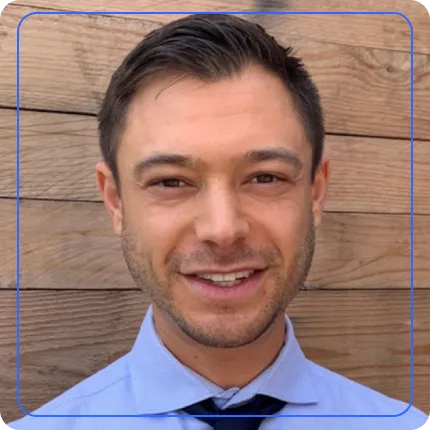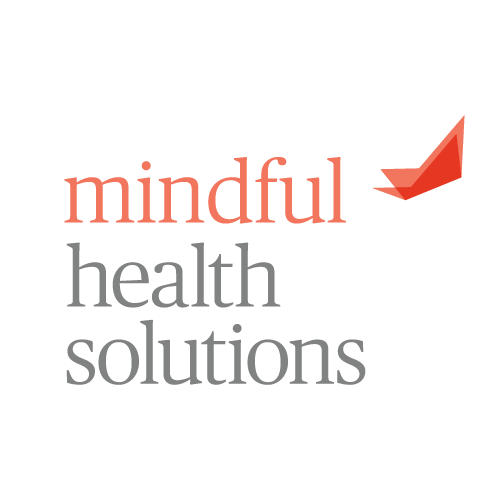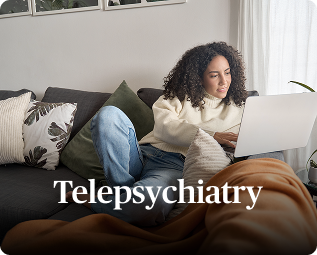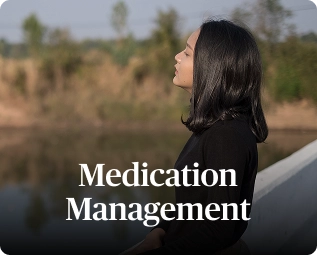Oakland Mental Health Clinic
3300 Webster Street, Suites 402, 803, & 804, Oakland, CA 94609
P: 650-677-1629 F: (510) 858-6613
E: intake@mindfulhealthsolutions.com
Located off Highway 580 on Broadway, our Oakland mental health clinic offers a safe and comfortable setting for cutting-edge interventional psychiatric treatments for anxiety disorders, mood disorders like clinical depression, and more. These therapies include Transcranial Magnetic Stimulation (TMS), Spravato (Esketamine) nasal spray, telehealth services, and general medication management.
We also offer Ketamine Infusion Therapy (KIT) in our newly expanded office. Ketamine therapy is an innovative alternative for treatment-resistant depression, administered by certified Oakland psychiatrists and support staff.
Clinicians on Staff

L. Alison McInnes, MD, MS
Psychiatrist | Director of Psychedelic Medicine

Nicholas Reeves, MD
Psychiatrist

Michael Minzenberg, MD
Psychiatrist | Medical Director of Research

Alvin Lau, MD
Psychiatrist
Associate Chief for Training & Innovation

Josh Habansky, PMHNP
Psychiatric Mental Health Nurse Practitioner

Gloria Cheung, PMHNP
Psychiatric Mental Health Nurse Practitioner

Trevor Haas, MD
Psychiatrist
At Mindful Health Solutions, our dedicated and skilled psychiatrists work tirelessly to ensure that each patient who walks through the doors of our Oakland mental health clinic is treated with respect and compassion. We understand how difficult it can be to navigate the struggles of everyday life when you are suffering from a mental illness, and our goal is to help you mitigate those difficulties so you can live your best life.
Our Oakland psychiatrists help patients with a variety of mental health conditions, including clinical depression, OCD, and anxiety. Each of our mental health clinics has been designed around a comfortable, thoughtful, end-to-end patient experience where we listen to you to ensure an individualized plan. This may include medication assessment and management, as well as esketamine nasal spray, IV ketamine therapy, and/or Transcranial Magnetic Stimulation (TMS therapy) in Oakland, both alternatives to antidepressants alone, covered by most insurance plans, and proven to show great results.
If you’re unable to come into our Oakland office, we offer telepsychiatry, allowing you to get care from wherever you are.
Parking:
Metered street parking is available for our Oakland clinic at the hourly rate, with a 2-hour limit. A parking garage is also attached to the building at 316 Hawthorne Ave, Oakland, CA, 94609.
Mindful Health Solutions does validate parking for the garage. To ensure validation, take a photo or write down the numbers of your license plate prior to coming to the front desk for your appointment.
Public Transportation:
Our Burlingame mental health clinic is accessible from the following AC Transit lines: 51A, 651, and 851.
Free Alta Bates shuttles connect to the MacArthur Bart Station. Take shuttle 3 or 4 to Merritt Pavilion.
Mindful Health Solutions
Contact Mindful Health Solutions for SPRAVATO & TMS in Oakland
Please fill out the form and you will be contacted by a member of our team to discuss treatment at our Oakland mental health clinic.
You may also call (650) 677-1474 to speak with an Intake Specialists about scheduling an appointment with one of our Oakland psychiatrists.
Insurance
We are in-network with Kaiser, Medicare, and all major commercial insurance plans.
Insurances Accepted























